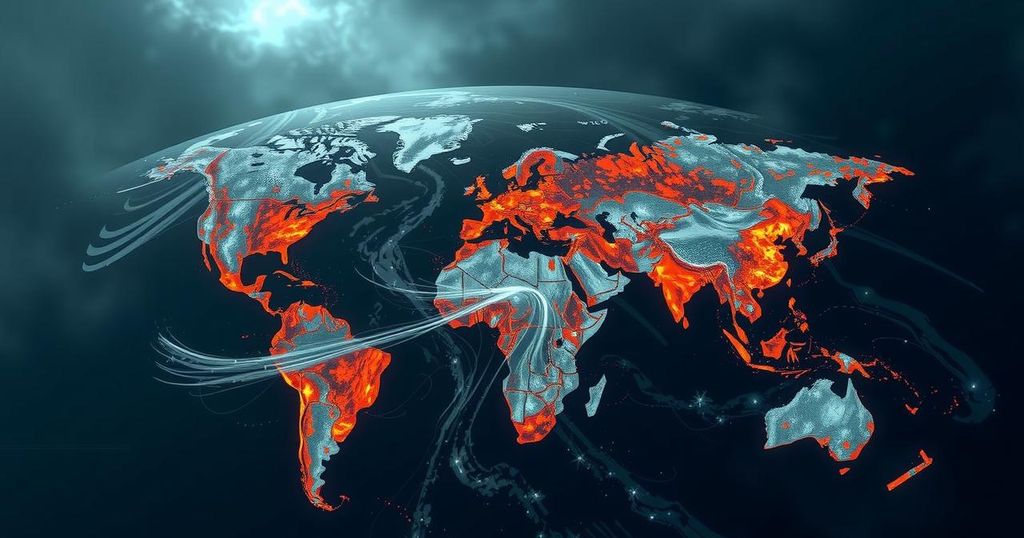A recent World Weather Attribution report indicates that climate change has intensified extreme weather events, leading to approximately 570,000 deaths globally, with the most lethal being a 2011 drought in Somalia. The analysis reveals that humanity remains unprepared for projected climate impacts, as global temperatures continue to rise. Experts reiterate the need for immediate action to combat climate change.
A recent report by World Weather Attribution (WWA) has revealed that extreme weather events exacerbated by anthropogenic climate change have resulted in approximately 570,000 fatalities globally over the past two decades. The report highlighted ten significant weather-related disasters, including hurricanes, heatwaves, droughts, and floods, noting that a severe drought in Somalia in 2011 accounted for over 250,000 deaths. Other notable incidents included Tropical Cyclone Nargis in Myanmar (2008), which claimed nearly 140,000 lives, and a heatwave in Russia (2010), responsible for over 55,000 deaths. Researchers utilized computer modeling techniques developed over the last 20 years to assess how these disasters were made more probable or intensified due to climate change. This analysis contrasted current conditions of 1.2ºC global warming with hypothetical scenarios absent of industrial impact. The findings underscore that humanity is ill-equipped to deal with the consequences of incremental warming, as pointed out by experts from the field.
The report from World Weather Attribution marks a significant investigation into the relationship between climate change and extreme weather events. With the rise in global temperatures largely attributed to human activity, the frequency and intensity of natural disasters have escalated. This study sequentially analyzed weather-related disasters from the International Disaster Database dating back to 2004 to establish how climate change has contributed to mortality rates. By applying contemporary climate models, researchers were able to create a baseline for assessing the implications of climate change on the severity of these weather events. This study comes at a critical juncture as the United Nations has indicated that the world is on a trajectory toward a potential 3ºC rise in global temperatures by the century’s end, underscoring the urgency of addressing climate issues.
In conclusion, the staggering death toll associated with climate change-induced extreme weather events highlights an urgent need for political and societal action. As reiterated by experts, the correlation between increased global temperatures and the frequency of catastrophic events cannot be overlooked. This report serves as a crucial reminder that without a shift away from fossil fuels and a commitment to climate action, the suffering caused by climate-related disasters will only escalate.
Original Source: www.theinertia.com






